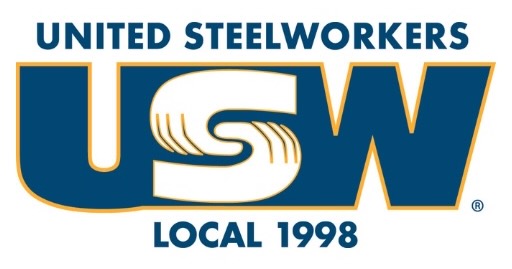Information for all Units:
Vaccines
Do I have to tell my manager if I have had the COVID-19 vaccine? – You do not have to disclose to your manager if you have received the vaccine or not. Currently, there is not any legislation that requires an employee to disclose their personal health information to their employer/manager. Confidential personal health info is also protected by Canadian Charter of Rights and Freedoms and the Ontario Human Rights Code. If your manger asks if you have been vaccinated, you can simply state that you are not comfortable sharing your personal medical information. If your manager is asking staff to reveal their vaccination status, please contact the Union and we will escalate the matter to Labour Relations.
Can I ask co-workers, students, clients if they’re vaccinated? Some people are very upfront and excited to share when they have had their vaccines. Others wish to keep it private. This is their personal health information, and you cannot ask your co-workers or students if they have had a vaccine. You must extend the same respect and sensitivity to others that we expect management to extend to us.
How can I be safe if I don’t know if people around me are vaccinated? There are several levels of measures to keep people safe in in-person settings. Protect yourself as you would if everyone around you has not had a vaccine. Return to work plans must include masking, appropriate distancing, good hand hygiene and proper ventilation to ensure that the workplace is as safe as possible.
Can management force me to have a vaccination? The issue of vaccinations in the workplace is a complex and evolving issue. There is nothing in our collective agreements that expressly allow our employers the right to impose vaccinations. If they developed a mandatory vaccine policy, it would need to balance the interests of the employer as a health and safety measure against the harm to the privacy interest and human rights of our members. Employers have an obligation to exhaust less intrusive means of achieving their objective of workplace safety before infringing on a workers’ privacy i.e. education and incentives.
Most of the caselaw that the Union has seen dealing with mandatory vaccinations (flu vaccine) have arisen out of hospitals, long-term care homes and similar workplaces where employees regularly come into contact with people who may be especially vulnerable to the effects of illnesses. Given the novelty of COVID-19 and the heightened danger relative to the flu, arbitrators may be more likely to find employer’s COVID policies to be reasonable. Scientists assert that vaccines will assist in stopping the spread. These factors may also have some impact on whether it is reasonable for an employer to require employees to get vaccinated.
There are other considerations that will need to be taken into consideration. Who is required to be vaccinated? All employees? Those who come into contact with students and the general public? For employees who cannot vaccinate due to allergies, pregnancy, religious objections or other reasons related to human rights grounds, the employer must accommodate them to the point of undue hardship. This may involve placing the employee in a different position at the workplace where vaccination would not be required due to reduced risk, allowing the employee to work from home where possible, or simply excusing them from the vaccination request.
At this point, the University of Toronto has mandated vaccines for students staying in residence but has not extended this to the whole U of T community. The Union encourages everyone who can to get vaccinated.
Return to campus plans – University of Toronto Units
(Vic, SMC and UTS arrangements may vary)
What is the plan for a return to in person work in the fall?
According to the memo from the VP for HR on June 24th, Divisions are creating return-to-campus plans that specify who will need to be on-site to support students. You may already have information from your department on the plans.
Can I continue working from home?
The University is developing an Alternative Work Arrangement Guideline that outlines which roles may be able to continue working remotely at least part time. This Guideline will spell out how staff can ask for a flexible work arrangement. In a memo from the VP Operations and Real Estate on July 9th on The Future of Post-Pandemic ‘Work Space’ Planning “fully remote work arrangements will not normally be approved” and “hybrid work arrangements wherein staff work out of the office on an agreed upon ratio will normally be approved.” That is all the information we have at the moment on the University’s plans.
The June 24 memo stated that “flexible work arrangements for employees [will be] based on principles of equity, inclusion, student support, and sustainability.” The Union’s main concern is that these policies will not be implemented fairly and consistently. Pre-pandemic we certainly saw a lot of inconsistency and favouritism in who was allowed to work from home and who wasn’t.
I need to work from home to care for my children
There still a great deal of uncertainty around daycares and schools and the arrangements for fall. People who need accommodation for family and or medical status will need to be accommodated.
Based on the Human Rights Code of Ontario, the employer must accommodate an employees care-giving responsibilities to the point of undue hardship.
There is not a one-size-fits-all answer, and these requests are dealt with on a case-by-case basis. If you need assistance working on an accommodation, talk to a Grievance Officer so we can get a sense of your needs, options, and the best way to negotiate this with the University.
If you are required to start working on campus – All Units
You have a right to information
Under the Occupational Health and Safety Act, you have the right to know about hazards in the workplace. Make sure that you have detailed information on the arrangements for health and safety in your work area: physical distancing, Personal Protective Equipment, etc., before you return to campus. The Union produced a Return to Campus Checklist last fall, and we’ll be updating this shortly. This will give tips on what information you should have for a safe return.
If you have health and safety concerns
First, bring your concerns to you supervisor/manager. If your concerns are not addressed in a timely manner, you can approach a worker member of the Joint Health and Safety Committee (JHSC) that services your area and/or contact the Local’s H&S Officer: mark.austin@usw1998.ca
A listing of U of T’s JHSC’s can be found here: https://ehs.utoronto.ca/jhsc/jhsc-listing-resources/
What is the Union’s role in health and safety? – All Units
The Union is always focused on the health and safety of our members. We work through the Joint Health and Safety Committees in our workplaces and assist members with health and safety and accommodation issues. We also raise concerns directly with management in all our employers. We want to ensure that all of our members are safe if and when they return to in-person work.
What is the Union doing at University of Toronto?
Local 1998 is very committed to the health and safety of our members and are working in coalition with CUPE and UTFA at U of T and faculty associations at York, Ryerson/X University and OCADU to call for greater detail and transparency on health and safety plans on all campuses to ensure a safe return to in-class learning this fall. For more information
One of our specific concerns are about the University’s plans for building ventilation. There are some documents online with the University’s plans to address this but there is no detailed information for individual buildings. With many very old buildings on campus, we need to ensure that there is appropriate filtration and air exchange in areas where our members will be working. If this cannot be achieved, then there must be lower occupancy levels in these workspaces.
The U of T community is huge. If some students are coming back for in-person learning, the University does not need to bring all staff back for the fall. If people are not in student-facing roles, they should not be required to come back to campus in the first stage of return in the fall. The University needs to focus on the safety of staff, faculty and students who need to be on campus as a first priority. Bringing thousands of other people back to campus in the fall is too risky. There are so many details to have in place to ensure a safe return to campus and so many unknowns with variants of concern. We think that a slow, gradual return over time while continuing flexible work arrangements is the only safe option.

